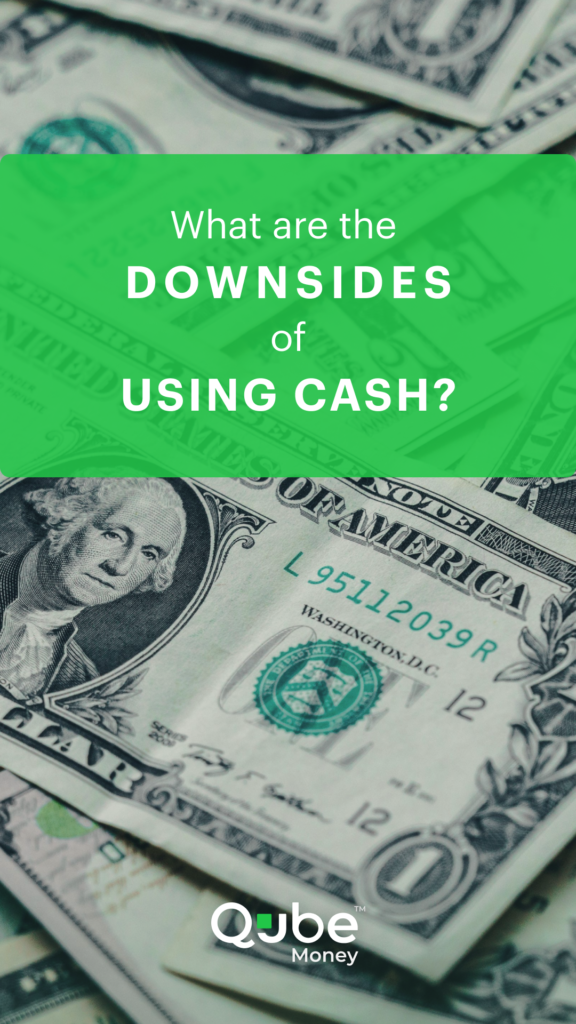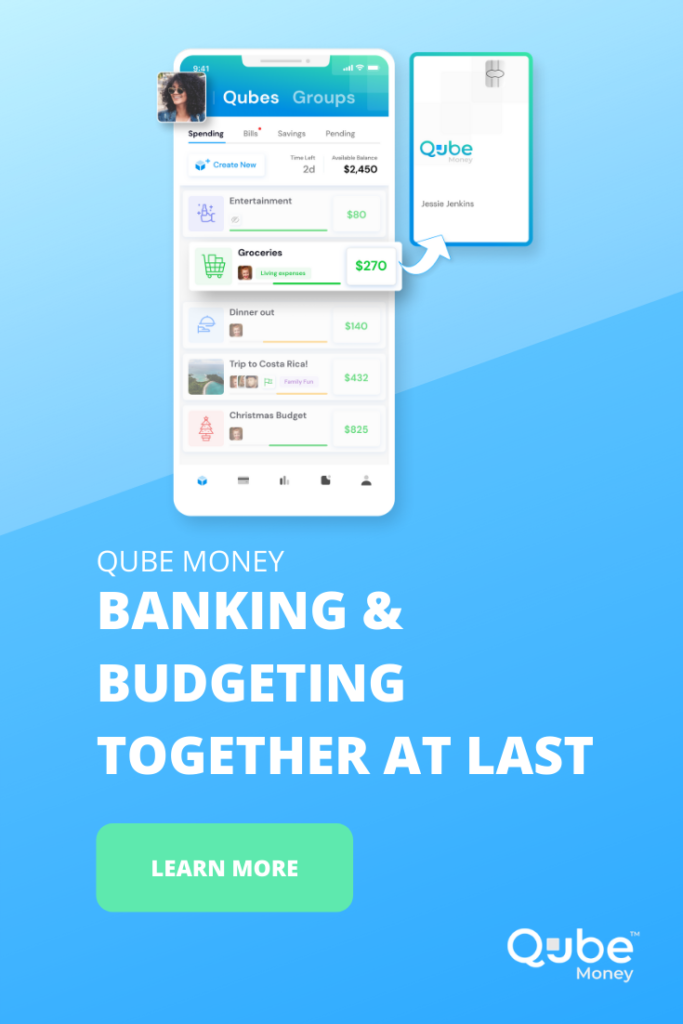If you’re starting out on your budgeting journey: be prepared. There’s a big debate underway: the advantages and/or disadvantages of cash.
Few things are as controversial in the budgeting world as the dispute over using cash versus cards to pay for purchases. Each side has its heavy-hitters, whether it’s Dave Ramsey proclaiming that cash is king, or Ramit Sethi who thinks you’d be foolish to miss out on the benefits of using credit cards.
Using cash has undeniable benefits, especially if you’re a chronic over-spender. “When we’re targeting certain areas, we’re looking to have them feel that they purchase a little bit more,” says Steven Donovan, a financial coach with Even Steven Money who frequently helps clients take the first steps towards good money management. “That’s when I’m going to recommend cash.”
Still, like everything else in life, there are disadvantages to cash — some you may not have thought of.
Our goal isn’t to sway your opinion one way or the other, but to help you think twice about the choices you make so you can make an informed decision about the best option for your family.
1. CARRYING CASH MAKES YOU A TARGET FOR THIEVES
If you’re fully committed to the cash envelope system, one of the disadvantages of using cash means you’ll always be toting around cash—and sometimes a lot of it, especially after payday.
And while you might not walk around wearing a sign that says “Thieves, over here! I’ve got loads of cash on me!” at some point, someone will see you pull out a plump envelope full of crisp $20 bills.
After that, you’ll leave the secure confines of the store to head out alone to the parking lot or public transit—not exactly the safest places to be if someone knows what’s in your wallet—cue Capital One.
2. YOU CAN LOSE IT
Even if you’re careful and you’re never a target for thieves, there’s another person you have to worry about: yourself.
“There’s the possibility of physically losing that cash,” says Donovan. “If I lose my credit card, there’s an issue, but I’m not weeping because I lost $1,000.”
Related: Pros & Cons of Moving to a Cashless Society
Losing any form of money is a hassle, but with a card, you can hopefully cancel it before it’s used. With a Qube Money debit card, the Default Zero Balance keeps you safe at all times, but with cash, you’re entirely out of luck—there’s no way to get it back if you lose it. You can leave your name and number in your wallet as a safety measure. But there’s still no guarantee that it’ll be found and returned by a good samaritan.
3. CASH DOESN’T COME WITH A ZERO-FRAUD LIABILITY GUARANTEE
Even outside of the possibility of theft, there are still protections that you forego by using cash.
“With cash, once you hand that over to someone, and if you don’t have a written contract or anything, there’s not a lot to say that you’re getting your money back,” says Donovan.
For example, let’s say you pay a handyman $500 in cash to install a new chandelier over your dining room table, and a week later it falls through the ceiling. Or maybe you pay a mechanic $750 for a flux capacitor, only to find out that nothing happens at 88 mph.
If you use a credit card, you can contest those purchases and you’ll most likely get your money back. If you pay with cash, you can potentially sue someone over the faulty purchases, but even that costs money.
PROTECTIONS FOR CREDIT CARDS VS. DEBIT CARDS
The rules for fraud protection for credit cards and debit cards differ somewhat. It mostly depends on when you report your card to the bank.
If you notify your credit card or debit card company before any fraudulent charges are made (such as if you lose your card), in most cases, you legally can’t be held liable for any fraudulent charges. Many credit card companies won’t hold you liable for any fraudulent charges at all, regardless of when you report it.
If you report your card after a fraudulent purchase is already made on it (such as if someone steals the card number itself), you can only be held liable for up to $50 total for credit cards, regardless of when you report it.
The rules for debit cards are a little more nuanced: if you report the fraudulent charge within two days, you can only be held liable for up to $50. If you report the fraudulent charge within 60 days, you can only be liable for $500. And if you wait more than 60 days to report a fraudulent charge with a debit card, there’s no limit to how much you can lose.
4. PAYING WITH CASH IS CLUNKY
Part of the appeal of using cards is that it’s so easy to pay by swiping them. You don’t need to hold up the line at the grocery store by counting out pennies and then scrambling to find homes for the change you get in return.
You also don’t have to do any math in your head on the fly—an important point to consider if it’s been a while since you took basic math classes in school. Finally, you also don’t have to worry about carrying around a bulky wallet. You can get away with a slim wallet clip if you want.
5. MAJOR DISADVANTAGE OF CASH: IT CARRIES GERMS
With everything that’s been going on with the Coronavirus, the World Health Organization is encouraging you to use as many digital payment options as possible. We know that money changes hands frequently and can pick up all sorts of bacteria and viruses. China was found to be cleaning, and in some cases, destroying its own currency in hopes of eliminating the spread of the virus.
Yet another reason why cash is becoming more obsolete and with the spread of Covid-19, this could change the way consumers spend using cash, forever.
6. Your Cash Isn’t Earning Interest
Not everyone has a checking account that offers interest on your everyday spending money. But, it can be a good way to earn cash to save towards your goals.
The highest-earning checking accounts, for example, offer as much as 1.01% APY, which can net you an extra $25 over the course of a year if you keep around $2,500 in your checking account. That’s money you’ll miss out on by keeping your spending money in cash.
7. DISADVANTAGE OF CASH: YOU’RE NOT BUILDING UP YOUR CREDIT
If you opt to use credit cards responsibly by keeping your spending under control and paying off your entire balance in full each month, you’ll lose a valuable opportunity to build credit.
Like it or not, the world revolves around credit. It’s your key to getting a good rate on loans (including a mortgage), foregoing security deposits with utility providers, renting a good apartment, and even getting a good job in some cases.
8. YOU’RE MISSING OUT ON CARD REWARDS
Similarly, if you use cash you miss out on a lot of good rewards. Whether it’s free travel, cash back, extended warranties, or free rental car insurance, there are a lot of benefits that come with paying with cards that you’ll never get if you opt not to use them.
Of course, the caveat is always that for most people, purchasing with a credit card causes unrealized overspending in the hundreds of dollars per month, even if you don’t rack up debt. So, carefully consider whether credit cards are right for you, or use a debit card program that is designed to make you aware of your spending.
9. IT’S MORE DIFFICULT TO PAY FOR EMERGENCIES WITH CASH
If all you carry is cash, you might be in for some rough times if an emergency happens.
That’s especially true if you’re away from home, or if it’s an especially large expense. What would you do, for example, if your car broke down on a road trip and you needed $3,000 to fix the transmission to get home?
10. YOU CAN’T PAY FOR ONLINE PURCHASES WITH CASH
Online shopping can be a source of overspending (hello, Amazon). But if you’re careful, online shopping can also be a good way to save time and money.
It’s easier to research the best products online, rather than being limited to what your local store happens to stock. That’s especially true for large purchases. It’s better to spend more on a quality suitcase that’ll last a lifetime, for example, than spend money over and over again on cheap Walmart suitcases that fall apart after a few flights.
You can also use rebate websites, online coupons, and comparison shopping websites to find the best deal on these products, saving you lots of money. And since you can have the items shipped to your door, you can save time as well.
None of this is possible, however, if you use cash to pay for your purchases. This is one of the big disadvantages of cash.
11. IT’S MORE DIFFICULT TO TRACK YOUR EXPENSES WITH CASH
One of the most important things in budgeting is to track your expenses, so you can see where your money is going and to have a record of your purchases.
This is especially helpful when you’re creating your budget for the first time because using a debit or credit card gives you an easy list of your past—and present—purchases. It gives you real data to work with, so you can see where to improve. Over time, you’ll see patterns in how you’re getting better, and how you’re getting closer to your financial goals.
“If you were to switch to an all-cash budget, it would be difficult,” says Donovan. “And I’m big on tracking expenses… If you get one thing out of me, make sure you track your expenses.”
Sure, you can collect a pile of receipts. But it’s easy to misplace them. It’s a mess to categorize them. AND after a while, the ink on thermal receipts fades, leaving a blank paper of confusion. When tracking your expenses in a budget, electronic records reign supreme.
Which Is Better—Cash or Cards?
We’ve presented many disadvantages of cash, some of which you probably haven’t thought about before. The truth is, that even with these disadvantages of using cash, there are times when the pros outweigh the cons.
Even then, it doesn’t have to be an all-or-nothing approach. Donovan, for example, often prefers to set up his coaching clients with spending problems on an all-debit-card spending system with problem spending categories (such as entertainment or restaurants) reserved for cash purchases only. That way, clients can get the best of both worlds.
With all of this information, you might be curious what spending method is best for you. Ready to uncover your unique money personality? Discover the perfect method tailored just for you! Click below to embark on our money personality quiz and discover which of our 12 money personalities aligns with your financial DNA
At the end of the day in personal finance, what you choose to do is up to you—even if that’s coloring outside of the lines when needed.
Learn more about your spending type with out money personality quiz.






![Everything You Need to Know About the Cash Envelope System [+ Sample Budget]](https://blog.qubemoney.com/wp-content/uploads/2020/01/1-20-20-the-cash-envelope-system-blog2-440x264.png)


